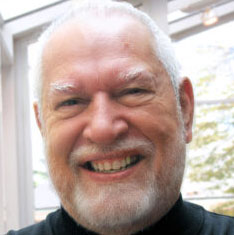Samuel writes:
Dear Vincent and twiv team,
Thanks a lot for the help!
By the way, Stéphane Blanc (from the CaMV papers you discussed) is one of our invited speakers.
We’ll happily advertise twiv in Roscoff.
Cheers,
– Samuel
Trudy writes:
Hi TWiVers,
I’m writing mostly in follow up to episode 268, in response to a Toph’s question about the possibility of a virus that triggers an immune response upon reinfection, but without protection from disease. I would like to suggest RSV as such a virus. First, prior infection, especially in infants and young children does not guarantee a safe response to later infection, often allowing an infant to become symptomatically infected more than once, even within a single RSV season. Second, studies with the formalin-inactivated vaccine of the 1960s show that viral challenge after immunization with this vaccine actually triggers a rather severe Th2-type inflammatory response which manifests itself as enhanced disease. So the immune response is there, but so is the disease upon second exposure to viral proteins. In fact this is one of the reasons why 50 years later we still don’t have an RSV vaccine.
I would also like to send in my own version of a do-it-yourself virus. This virus was made by my husband and he actually used it to propose marriage to me. At the time, I happened to be doing research on RSV at the CDC, and knowing my love of viruses, he made a replica of an RSV virion out of Styrofoam, complete with wooden and plastic glycoproteins on the outside. The virion has a removable cap showing the inside which is lined with glass beads representing matrix protein, nucleic acid made out of pipe cleaners, and a felt heart on which he placed my engagement ring. It is completely based on a picture he found on the Internet, since he is not a scientist. I think this is probably one of the geekiest proposals I have ever heard of, but I loved it.
Thanks again for the great work,
Trudy
Mark writes:
Hi Team TWiV,
Happy New Year 2014.
I’ll be brief. This image has been spreading through the internet today. Its time sensitive given the cold weather front that has been punishing the eastern United States.
I received this special, customized for Florida, image from a cousin who lives in north central Florida. I immediately thought of TWiV, your collective interest in weather, and wondered if Rich Condit shared my cousin’s description. It’s good fun that appeals to both genders. Of course you can’t read from the image during the show without being branded with an “explicit” tag in iTunes. However I’m sure you can evolve, like a virus, and convey its essence without triggering an immune system response from those who rate podcasts. Is that sufficient challenge to stimulate your collective creativity to read this on TWiV?
All the best.
Mark
Lance writes:
Dear TWiV crew,
Love the show, love what you all are doing for science. I graduated with a PhD in Microbiology and Immunology and worked on host-virus interactions of HCV.
I am currently working as a virologist in a public health lab and I wanted to pass along an interesting finding. A couple weeks ago we confirmed an adenovirus infection of the genitals in a male patient. My mind was blown, I was always taught that adenovirus was a respiratory virus.
A link to a manuscript of a large public health study is here:
http://www.ncbi.nlm.nih.gov/pmc/articles/PMC228564/
I think it is important for people to remember (especially PhDs and MDs) as we branch out and do other things outside the lab, that some microbes have lesser known presentations.
Thanks again,
Michael writes:
Hello Vincent and Twiv gang.
Good morning! It’s 8am and in my part of London it’s 3 degrees Celsius and humidity is 92%. First, I’d like to say thank you so much for the effort you and the gang put into making the Twi-logy. I have listened to, and enjoyed, all the episodes you have produced.
In the following paragraph, please excuse my language. My love of evolutionary ecology is not matched by my ability to put it into words.
I have just listened to TWIV 261 and there was a statement that bothered me. One of your contributors said that there is a universal rule in biology that parasites do not go back to being free living. This statement bothers me because if it is true then it should not just apply to parasites. Any organism that evolves to be specialized for a particular habitat will lose genes that allow it to use other habitats. And gain genes that allow it to more effectively exploit the, now narrower, niche.
So, I guess I’m saying, I don’t know if specialization is irreversible, but if it IS then it must apply to all organisms, not just parasites.
The question is therefore, do we have any examples of facultative parasites which largely depend on the host for growth and reproduction. Or are there obligate parasites that we have not yet discovered culture conditions in which they are capable of reproducing.
I would be grateful to hear your thoughts and especially those of Dickson.
Merry Christmas and thanks again for all the hard work!
Mike D Kelly (PhD)
Research Scientist
Animal Health Veterinary Laboratories Agency
Virology Department
Weybridge
Todd writes:
If you’ve not seen it yet, the twitter feed @realscientists is a rotating twitter account holding fantastic discussions with followers. It’s a curated account that rotates between submitters every week or two. The end of December was a scientist trekking through a jungle. This week it’s a fantastic discussion of science and communication.
Unrelated question: can you pronounce the full name for C elegans?
Peter writes:
Dear TWiV team,
I have a couple of possible listener picks of the week, from the BBC:
‘In Our Time: The Microscope’
Melvyn Bragg and his guests discuss the development of the microscope, an instrument which has revolutionised our knowledge of the world and the organisms that inhabit it.
With:
Jim Bennett
Visiting Keeper at the Science Museum in London
Sir Colin Humphreys
Professor of Materials Science and Director of Research at the University of Cambridge
Michelle Peckham
Professor of Cell Biology at the University of Leeds
http://www.bbc.co.uk/programmes/b03jdy3p
Another programme from BBC Radio 4, ‘The Next Global Killer’.
Aimed at a general audience the programme has interviews with people who are working on understanding and detecting emerging zoonotic diseases that could become the next pandemic.
http://www.bbc.co.uk/programmes/b03jb36z
Maybe the journalist Alok Jha who presented that programme could be a future guest on TWiV
Regards
Peter
P.S.
When will Virology 2 be running on Coursera?
Richard writes:
Dear TWIVers,
My nomination for a pick of the week:
http://abcnews.go.com/Health/slideshow/artist-creates-glass-sculptures-deadly-viruses-21412515
All the best,
Rich










